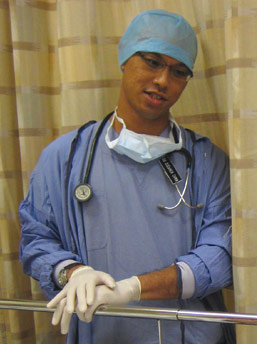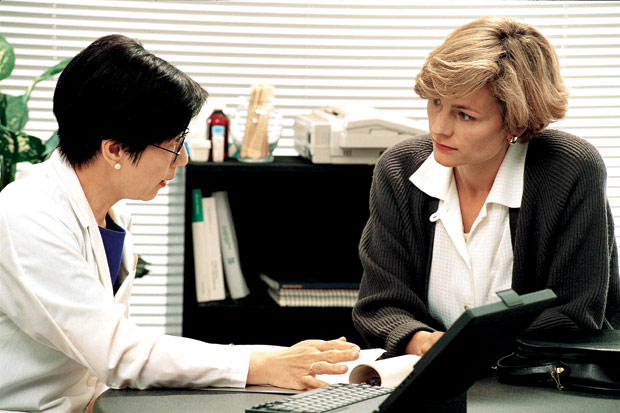 |
SEEKING OUT HEALTHCARE IN SINGAPORE
In the past few years, Asia Southeast Asia, long sought-after exotic
tourist destinations for the West, has drawn the attention of travel agents,
researchers and journalists
as a rapidly developing market for world-class
medical tourism. According to some comparative surveys, Asian medical services
have reached high global standards while keeping costs at a fraction of those
in the US, UK, Canada and Europe where medical bills have recently seen a
steady and relentless rise. Due to the ease and affordability
of air-travel, the number of people from these countries seeking medical help abroad
is increasing, thus contributing to the development of medical tourism in
Asia.
Singapore, one of the most advanced and prosperous countries of the
Southeast Asia, is also in the game. It has been a popular medical destination for a
while now, with patients coming mainly from Indonesia, Malaysia or Australia.
Today, there are more and more Russians among those coming to Singapore for
health screening or surgery. For Russians, medical tourism is no news: to get
their teeth fixed, they go to Switzerland or Austria, Germany is known as a
destination for those with heart diseases, and the faraway Thailand has been
popular with Russians as a plastic surgery hub.
But now Russians are discovering Singapore which previously had been
viewed
as a distant exotic land with nothing to offer except for beaches and palm trees.
With Russiaís best medical facilities situated mainly in Moscow, nowadays
one
of the most expensive cities in the world, it is much cheaper for Russians to
seek medical help in Singapore.
Besides, going to a foreign land, regardless of the initial purpose, is
always beneficial, for it introduces a tourist to a new country, its culture, customs
and whatever else urges ordinary globe trotters to explore.
1. Price for Health
 One of the major factors a medical tourist has
One of the major factors a medical tourist has
to consider is the cost. The
largest contributor
to cost would be the actual medical expenses –
specialist consultations, health screenings, various procedures or surgery. Josef
Woodman,
an American researcher, spent 7 years investigating medical facilities around
the globe, which resulted in his book Patients Beyond Borders: Everybodyís
Guide to Affordable, World-Class Medical Tourism. According
to the book, Singapore boasts one of the most technologically advanced medical services
with the costs at a fraction of those
in the US or Europe.
In all fairness, Singapore is noted as the most expensive country of Asia
and Southeast Asia. Taking a look at the comparative table featured in Woodmanís
book, one can immediately notice that medical costs in Singapore are 10 %
higher than
in other countries of the region. On the other hand, the same
table clearly shows that patients treated in Singapore pay up to 10 times less than
those in America or Europe.
Comparative costs for medical surgeries in the USA and some leading medical destinations of Asia (in US dollars):
| Surgery |
USA
|
India
|
Thailand
|
Singapore
|
Malaysia
|
| Heart Bypass |
130,000+ |
10,000 |
11,000 |
18,500 |
9,000 |
| Heart Valve replacement |
160,000 |
9,000 |
10,000 |
12,500 |
9,000 |
| Angioplasty |
57,000 |
11,000 |
13,000 |
13,000 |
11,000 |
| Hip replacement |
43,000 |
9,000 |
12,000 |
12,000 |
10,000 |
| Hysterectomy |
20,000 |
3,000 |
4,500 |
6,000 |
3,000 |
| Knee replacement |
40,000 |
8,500 |
10,000 |
13,000 |
8,000 |
| Spinal fusion |
62,000 |
5,000 |
7,000 |
9,000 |
6,000 |
Source: Patients Beyond Borders: Everybody's Guide to Affordable, World-Class Medical Tourism by†Josef Woodman. P.†8.
But let us ask ourselves: Is the 10 % increase too big a price for what
Singapore
as a country has to offer to visiting foreigners? Unlike the
Philippines or Thailand, Singapore is free from coup díetats or other
political turmoil that could endanger
a foreignerís life. Singaporeís streets are
clean from both rubbish and homeless beggars who can be quite a nuisance for
tourists visiting India. In Singapore, one can drink tap water and breathe normally
without the risk of inhaling the elements
of the entire periodic table
– just the opposite would be in Manila or Mumbai.
The crime rate in Singapore is
almost non-existent in comparison to neighboring Malaysia. Last but not least,
Singapore has more than enough tourist attractions, cultural events and
interesting or even wild nightlife for foreign patients not to get bored after
they are done with the medical routine for the day.

Well, the 10-percent surcharge does not seem that high a cost after all,
does it?
It obviously goes with the territory: the most advanced, cleanest and
safest country
of the Southeast Asia, Singapore obviously uses the surplus
in a wise way.
2. Travel Expenses
Apart from the medical costs, a foreign patient faces the same array of
expenses
as an ordinary tourist: air-tickets, visas, hotel accommodation,
meals, entertainment, excursions and shopping. As for hotels, in Singapore
they are much cheaper than
in Europe. For instance, a night at a 3-star hotel in
Paris in the vicinity of Champs-Elysees would cost you 250–300 euros; in
Singapore the same sum would accommodate you in one of the top-notch hotels in
Orchard Road
(the shopping artery of the island) or in the magnificent colonial Fullerton Hotel
in the heart of Singaporeís historic centre.
Another factor to consider is the duration of a medical touristís stay which
is determined by the local doctorís Ďverdictí which may not coincide with that of
your Russian practitioner. Thus, be ready to be flexible with your travel
arrangements.
For general health screening, 1–3 days is needed. If
you require an operation you may need 2 to 30 days to recuperate, depending on the type of
surgery. For those in need
of chemotherapy, the stay may extend to several
weeks or even months. In that case, we would recommend staying in Service
Apartments since it would be easier on your pocket than staying in a hotel for
the same period of time. Besides, the services provided are excellent and more
comprehensive than in hotels. Such apartments normally come with a bedroom, a
living-room and a fully equipped kitchenette,
free Internet access, and a
butler service 24/7.
3. Lost in Translation
English is one of the four state languages in Singapore (other three are
Malay, Mandarin and Tamil). Having heard that Singapore is a generally
English-speaking country, many Russian tourists – some with only basic
knowledge of English,
some speaking it rather fluently – would tend
to rely on their own language competency to get by in Singapore. A rather rash and
presumptuous assumption! That is because the English of Singapore is a unique
blend of English with various Chinese dialects still widely spoken here. The
interference o the languages is so strong that most of the norms of the
English language – grammatical, phonetic and syntactical – are broken
to the point that even to the British and Americans it sounds as gobbledegook at first. Even
they have to strain their ears and sometimes use their creative thinking
to understand this local speak which is known as Singlish. Numerous borrowed
words from Malay and some Indian dialects add to the problem. Even such
highly-educated people as medical doctors speak English with some accents
characteristic of the racial group they belong to.
Tips for medical tourists:
| Do: | Don't: |
|---|
- plan ahead as much as possible;
- make inquires in relation to the doctor and clinic you are traveling to; ask your regional coordinator to provide you with a relevant email address and write to them;
- ask your regional coordinator to do the research for you and to establish communication between you and your Singaporean physician if you do not speak English;
- ask your coordinator to provide you with your appointments schedule before your arrival to Singapore;
- make inquires in relation to your prospective interpreter, his/her qualifications and work experience; remember that an inaccurate translation in the medical sphere might lead to drastic results;
- inform your Russian doctor before you depart;
- stay close to your treatment centre, also note that some of them may have rooms for international patients within their walls for affordable fee.
|
- rely entirely on the internet;
- plan your trip with a rushed schedule that is too tight (it is wise to buy an open-date air-ticket and keep some days in store);
- plan your trip during high season which in Singapore is in January-February and June-July.
|
All these peculiarities of Singlish are so significant that you may want to
think
of hiring an interpreter, whose fee in Singapore today is US$
35–60 per hour.
Quite steep but trust us, it is worth each cent. A qualified,
knowledgeable interpreter who has resided in Singapore for some time and is
used to the local English, would not only ensure an adequate communication
between you and your local doctor,
but would also be a priceless source of
information to you. He or she would help you buy a top-up Sim card with a
local number for your telephone, or make sure that your hotel accommodation is up to
your standards, and may even drive you in their own car around the city to
facilitate your shopping or sight-seeing.

But you must be aware that not every person who knows English is capable
of providing a quality translation/interpretation service. Unfortunately, there
are far too many Russians in Singapore who claim the title, regardless of the
fact that translators and interpreters are professionals who have invested
years and dollars
in their education and training. If literary translation
is akin to art, oral interpretation
is at least a craft which requires
constant honing and upgrading, like many other professions.
It is important to understand that a medical translation/interpretation is
a rather specific area which requires adequate knowledge of relevant terminology
in both languages,
as well as being at ease with such aspects as anatomy,
chemistry, diagnostic equipment, etc. That is why we would highly recommend
inquiring before your arrival at Singapore on the person who would be
interpreting for you and on his/her qualifications
and academic background.
Remember: An interpreterís error might cost you dearly – your
health.
4. Health Travel Agent to the Rescue
If you wish to avoid the hassle of arranging a trip to another country and
can afford additional costs, you may refer to a representative office of the
Singapore clinic you
are going to or to independent, Singapore-based,
Russian-speaking agents who specialize in medical tourism.
Typically, services provided would include assistance with applying for a
visa (Russians are usually issued a 2-year multiple entry visa allowing a short
say
of 30 days), and arranging for accommodation and a qualified
interpreter.
The representative office or independent agents will also make appointments
with the necessary medical specialists before your arrival to Singapore and help
to coordinate the exchange of medical data (X-rays, scan images, test results,
specialistsí reports, etc.) between your doctors at home and in Singapore.
The advantage of seeking assistance with a Singapore-based Russian firm is
that
its staff would be at your disposal throughout your stay to facilitate the
process
and help resolve any issues or difficulties that may occur.
Should you have any queries on medical treatment in Singapore,
feel free to contact The†Russian Singapore†at medicine@meridian103.com
or by phone: +65 907 60875
|
|
 +65 6696 7068
+65 6696 7068
 info@meridian103.com
info@meridian103.com
 PDA
PDA
 +65 6696 7068
+65 6696 7068
 info@meridian103.com
info@meridian103.com
 PDA
PDA
